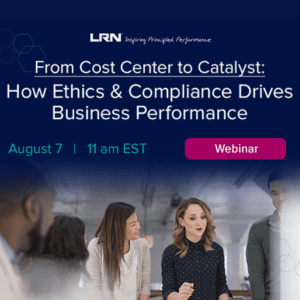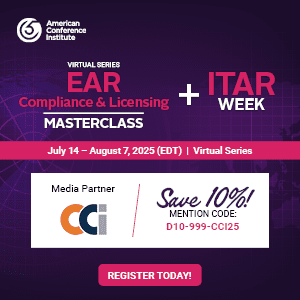A high-performance sports car that can go from 0 to 60 is impressive but, ultimately, the car is unsafe without high-performance brakes. In other words, the car is only as good as the controls in place. So, what does this have to do with governance, risk and compliance (GRC) in the enterprise setting? Unfortunately, reactive approaches in corporate settings are far too common when a proactive approach is needed. Risk and compliance only perform as well as risk management can support it.
GRC Stakeholders: What is the Challenge?
Risk management teams are in a difficult situation. They are responsible for risk management processes, but they typically don’t know the key risks that are owned by various lines of business. Risk management is often siloed with different departments or business units managing different types of risks: operational, market, financial, IT, human capital, supply chain, etc. Risk management teams usually come up with good solutions to address known risks, but have no visibility into other risks that could affect them outside of their silo. Teams also struggle with compliance follow up, progress and risk status tracking. In some silos, where market expectations and deliverables are the main concern, risks may be an afterthought. However, risk and performance are really two sides of the same coin.
Risk management programs are often project-based and reactive in nature, so separation exists between these programs and mainstream processes and decision making. These programs also are naturally compliance-focused with high cost and low value add. When risk is understood and compartmentalized in silos, the organization frequently fails to see the web of risk interconnectedness and its impact on performance and strategy, which leads to greater risk exposure.
Defining Risk Management
Risk management has a complex composition in most companies, with myriad business processes spanning multiple organizations across several regions. There typically are different compliance regulations across all organizations, with no clear view and understanding of each of these elements. Many companies have undue or even catastrophic risks that they cannot identify or remediate. They also have a lot of duplication of efforts and significantly higher data maintenance. Finally, there is usually a high level of effort exerted for manual control testing and result consolidations, with no unified and integrated architecture for risks and controls.
This brings us to the “core issue:” How can organizations close the performance loop when there is a clear disconnect between risks, policies and compliance?
The Solution: GRC Convergence
A 2010 KPMG GRC survey of more than 500 executives across a range of industries and regions found that 64 percent believe “GRC convergence is a priority for our organization.” In the face of GRC challenges, organizations like yours need a solution that can simultaneously reduce risk exposure, reduce costs and increase overall performance. GRC convergence can uniquely address this problem. However, a true “enterprise GRC” solution must include a platform that not only enables organizations to gain visibility into all their risk and compliance activities, but also to more effectively and efficiently manage them.
When we talk about GRC convergence, the relevant “3 P’s” include people, processes and products. The people include Risk Managers, Compliance Managers, Auditors, IT and Security and other stakeholders. Processes include risk, compliance, audit, policy and access. Finally, the products include tools for managing risk and controls.
A Simplified Approach
GRC solutions are designed to support users and enable compliance and risk-related processes across the organization. Unfortunately, many organizations don’t have ways to measure quantitative and qualitative risks. As a result, they waste valuable time and money managing risks that simply don’t matter because they are unlikely to occur or would not be catastrophic.
Instead, companies need to first identify true key risks, then create a prioritized response plan. By using a technology platform to automate and control processes through a central repository, companies can monitor, test and follow up as needed. Utilizing a “manage by exception model” is also key, in that controls can be automated so that only deficiencies are reported and communicated. Companies also can create and distribute policies to make people more aware and make responses mandatory by requiring acknowledgement, the completion of a survey or a minimum score on a quiz.
Businesses can simplify their approach by focusing on three areas:
- GRC Efficiency: Provides savings in human and financial capital resources by reducing operational costs through automating processes.
- GRC Effectiveness: Achieves effectiveness in risk, control, compliance, IT, audit and other GRC processes.
- GRC Agility: Delivers rapid response to changes in the internal business environment (e.g., employees, business relationships, operational risks and M&A), as well as the external environment (e.g., industry developments, economic factors and changing regulations).
Separation of Powers and Eliminating GRC Inefficiencies
Businesses must take a proactive approach to risk monitoring. A solution is needed to easily define KRIs, establish an early warning system, increase risk visibility to key stakeholders, create common risk definitions across all lines of business and increase automation across the entire risk management life cycle. By doing so, you can align risks to strategic priorities and business objectives and more proactively monitor risks through defined key risk indicators and a standardized early warning system. You also can benefit from a view of consolidated risk exposure resulting from risk analysis and correlation.
To ensure proper controls and increase transparency and accountability, businesses need to automate control activities through continuous control monitoring and mandate enterprise-wide regulations. Your business also needs to utilize a centralized repository for risk and control documentation, testing and remediation and create automated and semi-automated controls for continuous control monitoring and auditing. In doing so, your business will benefit from a multi-compliance framework that enables enterprise-wide regulations and centralized risk and control documentation, testing and remediation across organizations and compliance initiatives.
Achieving Full Value
By taking advantage of an integrated GRC architecture that unifies controls, risks and master data repositories versus a standalone system approach, your organization can realize a significant increase in visibility to risks and risk management throughout the organization. You will realize advantages through an ability to incorporate risk into the company’s strategic planning and increased confidence in your company’s control structure. You also will reduce audit (internal and external) and compliance costs and reduce ad hoc requests to IT for information extracts to support compliance requests.
Finally, through automated compliance and control activities, you will enjoy greater comfort over fraud prevention, with an ability to respond faster to compliance issues and perform more effective remediation. Company resources can be redeployed to more value-added tasks versus detailed compliance activities.



 Tracy Levine (CPIM) is an SAP Application Consultant at itelligence. She has five years of experience in SAP Security and Authorizations, GRC Access Control, GRC Process Control and core cross-module integration across many industry verticals. Tracy is an SAP Certified Application Associate - SAP BusinessObjects Access Control 10.0 and is the voice behind the blog Tracy-Levine.com.
Tracy Levine (CPIM) is an SAP Application Consultant at itelligence. She has five years of experience in SAP Security and Authorizations, GRC Access Control, GRC Process Control and core cross-module integration across many industry verticals. Tracy is an SAP Certified Application Associate - SAP BusinessObjects Access Control 10.0 and is the voice behind the blog Tracy-Levine.com. 







